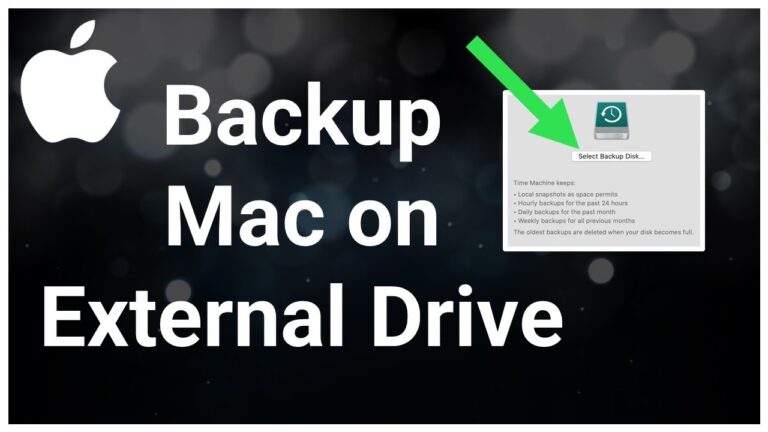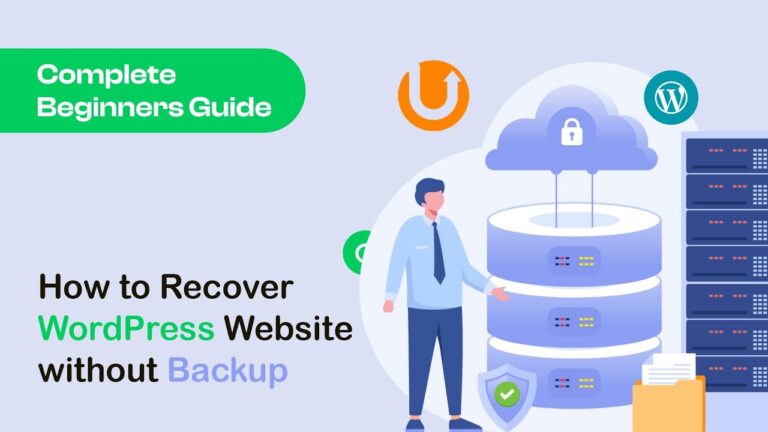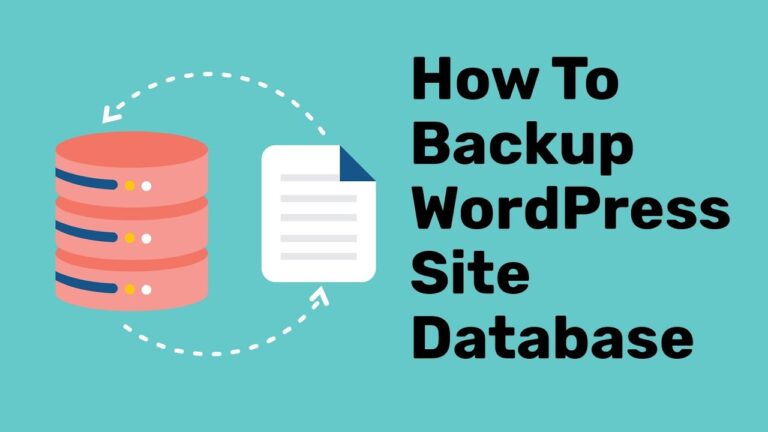How to backup a WordPress Site
WordPress is the world’s most popular content management system, and for a good reason.
It’s user-friendly, flexible, and provides a plethora of customization options that make it the go-to choice for website owners worldwide.
However, with great power comes greater responsibility. Regularly backing up your WordPress site is the best way to keep your content, data, and configurations safe.
It protects you from server crashes, hacks, and data loss.
Backing up your WordPress site doesn’t have to be a daunting task; it’s a simple process that requires a few easy steps to follow.
In this blog post, we’ll take an in-depth look at how to backup a WordPress site like a pro. Whether you’re a seasoned WordPress user or just starting out, we’ve got you covered.
This blog post will cover the four different methods of backing up WordPress sites, including using hosting providers, using plugins, manually, and through third-party services.
Table of Contents How to backup a WordPress Site
Why backing up is crucial.
Backing up your WordPress site is crucial because, without a backup, you risk losing all your hard work and valuable data.
A backup is simply a copy of your website files and database that you can use to restore your site in case of a disaster.
A disaster could be anything from a hacker attack to a server crash, or even something as simple as accidentally deleting important files.
Regularly backing up your WordPress site helps safeguard against potential disasters and enables quick and easy restoration in case of any issues.
In this tutorial, we will show you how to backup your WordPress site using different methods, such as plugins and manual backups.
In this guide, you will learn why it is important to backup your WordPress site, how to backup your site, and the different options available for WordPress site backup.
Use a reliable host provider.
With regard to backing up your WordPress site, one of the most important steps is to use a reliable host provider.
Your host provider is responsible for keeping your website up and running, and if something goes wrong, they should have a backup plan in place.
Make sure you choose a host provider that offers regular backups, with multiple restore points, and has a good reputation for reliability and security. It’s also important to keep your own backups, just in case something unexpected happens.
Backing up your WordPress site regularly is important to prevent data loss, maintain content and functionality, and protect against potential threats.
Make sure you have a reliable web hosting provider when backing up your WordPress site.
Backup with plugins.
Backing up your WordPress site is important to prevent losing your work and data if there is a security breach, server crash, or other unexpected events.
Fortunately, backing up your WordPress site is a relatively simple process thanks to the availability of plugins.
With a backup plugin, you can automate the process of backing up your WordPress site and schedule backups to run at regular intervals.
These plugins can also help you to save time and effort by allowing you to easily restore your site from a backup in case something goes wrong. Some popular backup plugins for WordPress site backup include UpdraftPlus, BlogVault, and VaultPress.
These plugins offer a range of features, including incremental backups, cloud storage, and automated backups. With these plugins, you can rest assured that your WordPress site is always backed up and secure.
Schedule automatic backups.
Backing up your WordPress site is essential with regard to ensuring the safety of your data.
One of the most convenient ways to do this is by scheduling automatic backups. This ensures that your site is backed up regularly without you having to remember to do it manually.
To schedule automatic backups, you can use a WordPress plugin that offers this feature. There are various plugins available that allow you to set up automatic backups on a schedule that suits you.
These plugins also offer a range of backup options, such as backing up to cloud storage or downloading the backup file to your computer.
Scheduling automatic backups for your WordPress site ensures that it is always backed up and can be restored quickly in case of any unexpected problems, giving you peace of mind.
Manually backup your website.
Backing up your WordPress site is crucial to ensure that your content and data remain safe and secure.
One of the best ways to accumplish this is to manually backup your website.
Make a backup of your website’s files and database and keep it in a secure place like an external hard drive or cloud storage service.
To manually backup your WordPress site, you will need to access your site’s cPanel or FTP account and download all of your site’s files.
You will also need to export your site’s database using PhpMyAdmin. Once you have these files downloaded, you can store them in a secure location for safekeeping.
Backing up your website manually can be time-consuming and require effort, but it is important to do so to keep your data safe.
By following the steps outlined in this guide, you can easily backup your WordPress site and have peace of mind knowing that your content is protected.
Save your backup offsite.
Regularly backing up your WordPress site is crucial for keeping your website data safe and secure in case of crashes, hacks, or other disasters.
However, it is equally important to safeguard those backups by saving them offsite. This means that your backup files should be stored on a remote server or cloud-based platform.
By doing this, you make sure that if your website or server is hacked, your backups will still be secure and can be used to restore your website to its previous state.
There are many reliable offsite backup services available, such as Dropbox, Google Drive, Amazon S3, and more.
These services typically offer easy integration with WordPress plugins that allow automatic backups and scheduled backups.
So, make sure to always save your backup offsite to ensure maximum protection for your WordPress site.
Verify your backup file.
With respect to backing up your WordPress site, it is crucial to verify your backup file to ensure that it is complete and accurate.
This step is often overlooked, but it can save you a lot of time and headache in case of a website emergency.
To verify your backup file, you can start by checking the file size and comparing it to the original website. This will give you an idea if the backup file contains everything that should be backed up.
Next, you can restore the backup to a test location and make sure that everything is working correctly.
This will give you peace of mind that you can rely on your backup file in case of an emergency. Remember, the purpose of backing up your WordPress site is to have a reliable copy that you can restore whenever needed.
By taking the time to verify your backup file, you can ensure that you have a complete and accurate backup that will save you time, money, and stress in the long run.
Test your backup site.
The issue of backing up your WordPress site makes it important not only to create backups but also to test them regularly.
This is especially crucial if you run a business or rely on your website for income. Testing your backup site ensures that your backup process is working correctly and that your data is recoverable in case of any unforeseen circumstances.
To test your backup site, you can restore it to a staging environment or a local server to make sure everything is functioning properly.
This step is often overlooked, but it’s crucial to ensure that you have a reliable backup in case of an emergency. So, make sure to include testing your backup site as a part of your backup WordPress site process.
Keep your backup updated.
One of the most important things you can do to ensure the safety and security of your WordPress site is to keep your backup updated.
Creating a backup of your WordPress site is essential in case of any data loss or security breaches.
However, simply creating a backup and forgetting about it is not enough. You need to ensure that your backup is up-to-date and contains all the latest changes made to your site.
You should regularly back up your website, especially after making important changes like adding new content or plugins.
It’s also important to test your backup regularly to ensure that it is working correctly and that you can restore your site if needed.
By keeping your backup updated, you can be sure that your WordPress site is always protected and that you can easily restore it if any problems arise.
Restore your website from backup.
Regularly backing up your WordPress site is important to keep your website’s data and files safe from security breaches or unexpected events that could result in data loss.
However, it is also important to know how to restore your website from backup in case of such an event.
The process of restoring a WordPress site from backup involves a few steps, depending on the backup solution you use. If you have a backup plugin, you can use it to restore your website by uploading the backup file and following the prompts.
Alternatively, you can restore your website manually by downloading the backup files, uploading them to your server, and reconfiguring your website settings.
It is important to note that restoring your website from backup should be done carefully, as any mistakes can cause permanent data loss.
Therefore, it is recommended to test the backup files before restoring them to ensure that they are complete and functional.
By regularly backing up your WordPress site and knowing how to restore it from backup, you can ensure the safety and continuity of your website.
In conclusion, backing up your WordPress site is a crucial step in ensuring the security and integrity of your website.
There are many methods to backup your site, including using plugins, hosting backups, and manual backups.
It’s important to choose a backup method that suits your needs and schedule regular backups to ensure that your website’s data is protected.
By following the steps outlined in this post, you can rest easy knowing that your website is backed up and secure.







